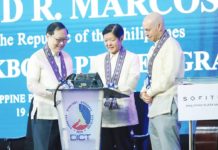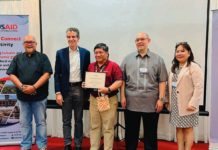
[av_one_full first min_height=” vertical_alignment=” space=” custom_margin=” margin=’0px’ padding=’0px’ border=” border_color=” radius=’0px’ background_color=” src=” background_position=’top left’ background_repeat=’no-repeat’ animation=”]
[av_heading heading=’AFTER BACOLOD PROTEST | Coke commits to buy more local sugar’ tag=’h3′ style=’blockquote modern-quote’ size=” subheading_active=’subheading_below’ subheading_size=’15’ padding=’10’ color=” custom_font=”]
By ADRIAN STEWART CO
[/av_heading]
[av_textblock size=” font_color=’custom’ color=”]
Tuesday, March 28, 2017
[/av_textblock]
[av_textblock size=” font_color=” color=”]
MANILA – Days after the protest in Bacolod City, the Coca Cola Femsa Philippines Inc. recently informed the Department of Agriculture (DA) on its plan to buy local sugar for its soft drink and beverage production.
DA secretary Emmanuel Piñol said that he was informed by Coca Cola Femsa vice president for corporate affairs Adel Tamano and legal and corporate director Lorenzo Tanada of the development.
According to Piñol, Tamano told him that the Coca Cola Femsa reached the decision after consulting with their general manager Diego Granizo following a series of talks with DA and the Sugar Regulatory
Administration (SRA) board.
“The corporation said that they are willing to spend a few million dollars more just to show that the company is willing to help the sugar industry and the Philippine agriculture,” Pinol said.
However, the Coca Cola Femsa has asked for a six-month period to be able to install new clarification equipment which would process the local raw sugar to syrup for its products.
“This would now mean that the beverage companies will slowly shift from the use of HFCS to local sugar, a move which would greatly benefit the sugar farmers of the country,” Pinol said.
Sugar producers and farmers, agrarian reform beneficiaries, labor leaders, and local government officials of Bacolod has recently protested Coca-Cola FEMSA Philippines and other companies importation and use of high-fructose corn syrup (HFCS).
HFCS, which is being used as alternative sweetener in beverage products, is dangerous to human health and its importation and use lower the demand for locally produced sugar.
The SRA has recently approved Sugar Order No. 3, which regulates and imposes stiffer tariffs on imported lower-priced HFCS from China. The SO 3 was issued in the face of plummeting prices of local sugar, which dropped to P1,300 per 50-kilo bag./PN
[/av_textblock]
[/av_one_full]



